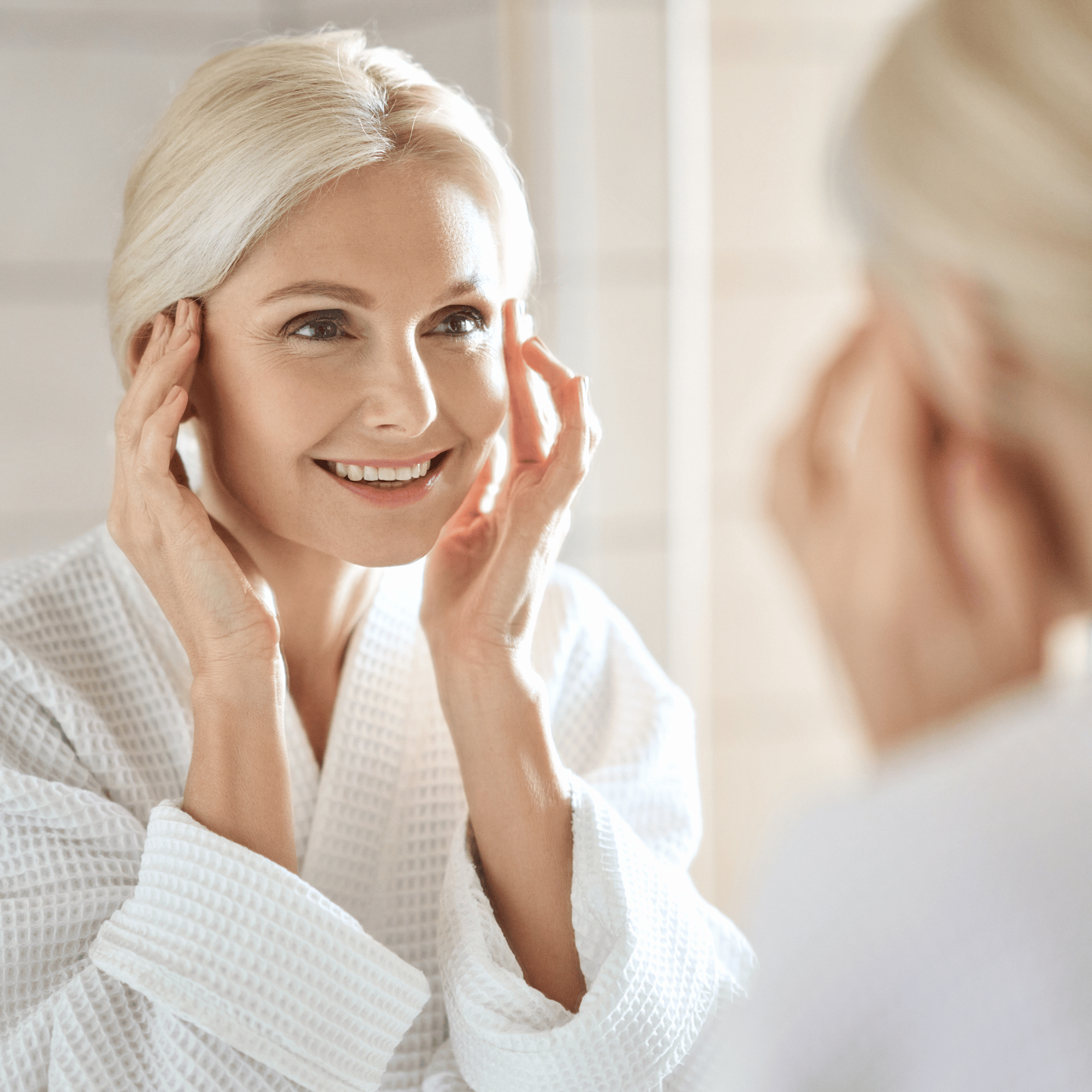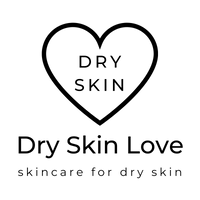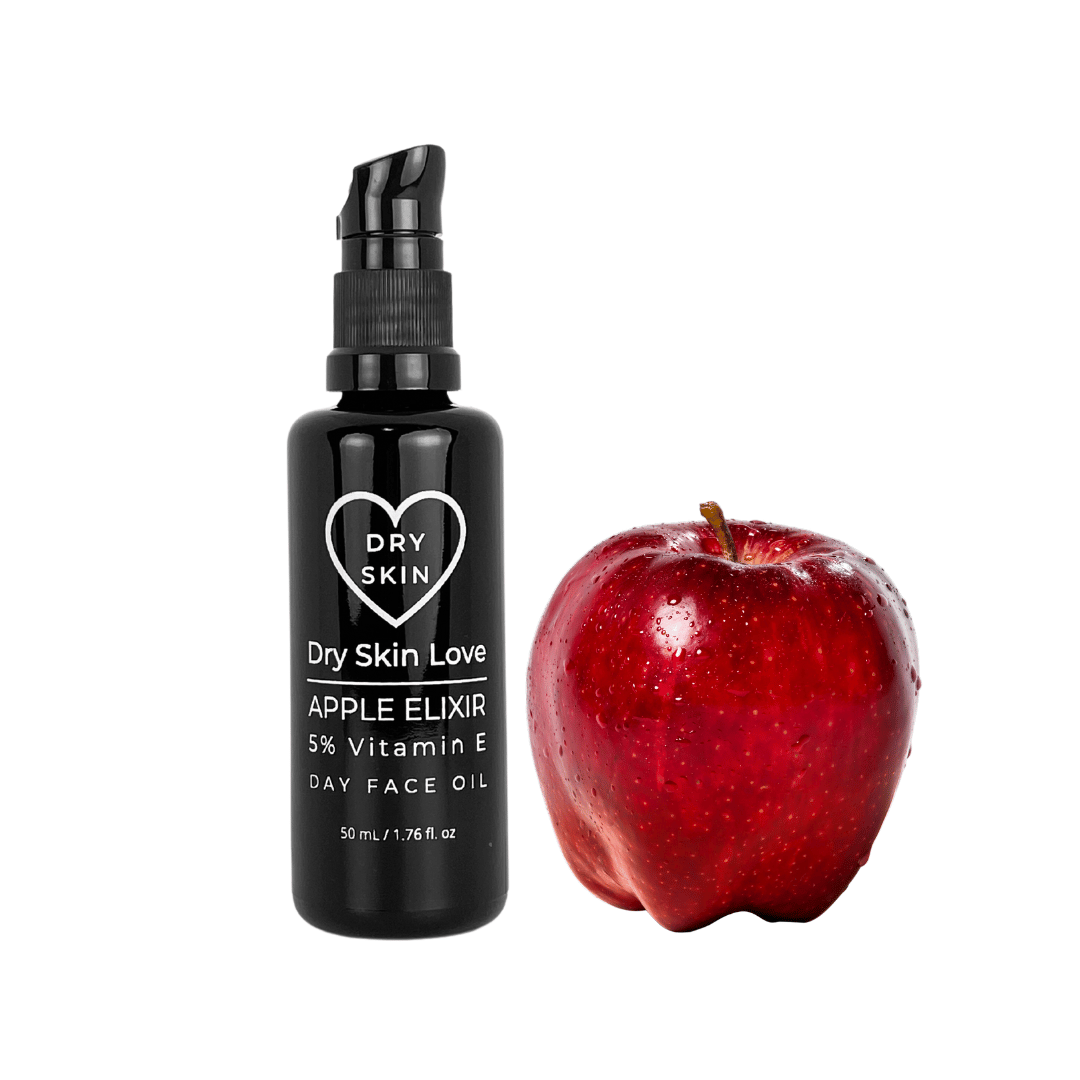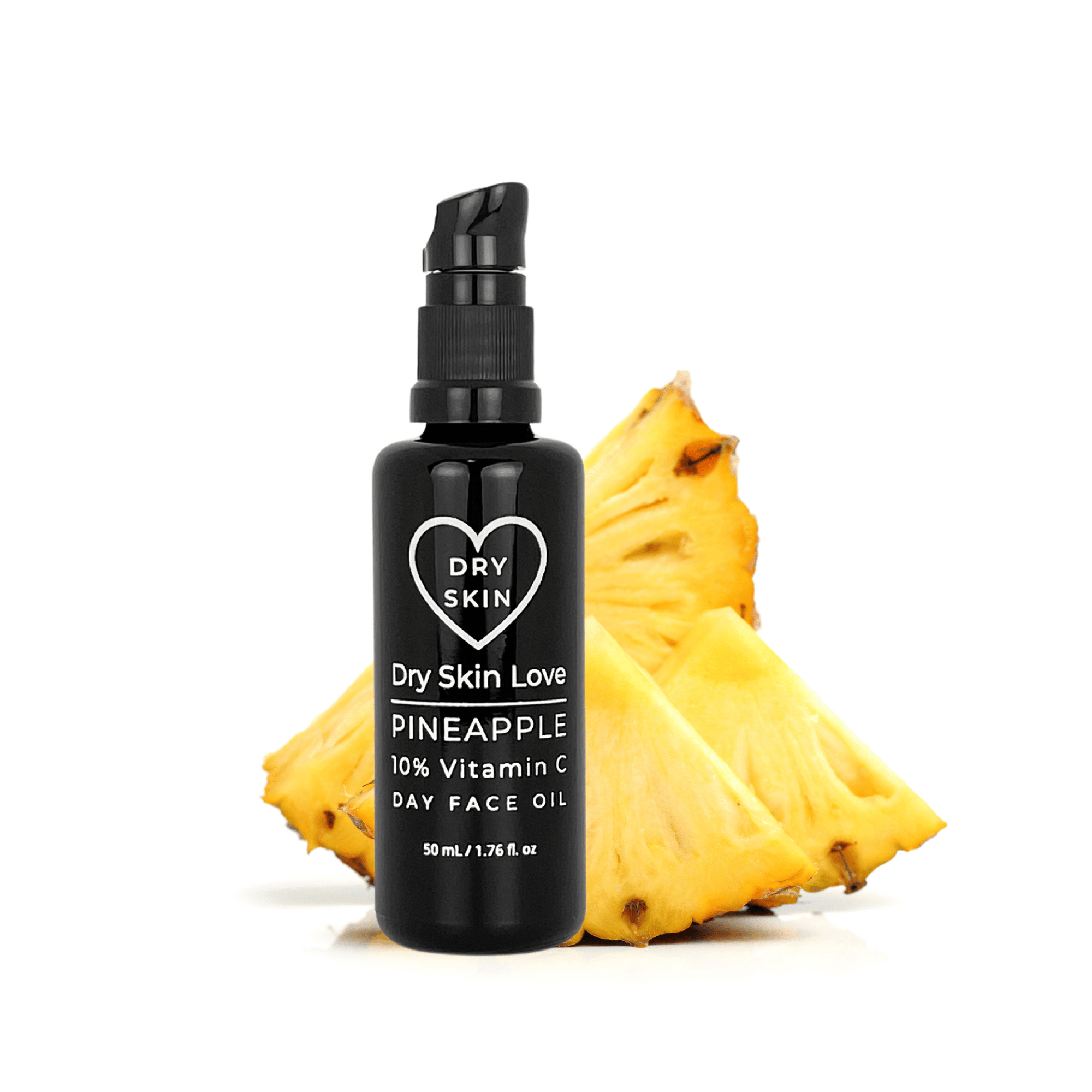
Dry Aging Skin
What Causes Your Skin To Age?
Skin aging is influenced by both internal (intrinsic) and external (extrinsic) factors.
Intrinsic aging factors:
- Genetic predisposition
- Health and medical conditions
- Hormonal changes (e.g. menopause)
- Diet and nutrition
- Physical activity levels
Extrinsic aging factors:
- UV radiation (photoaging)
- Air pollution
- Smoking
Chronic exposure to sunlight, pollutants, and tobacco smoke leads to premature wrinkles, loss of elasticity, and uneven skin tone.
Protecting the skin from these external stressors can help slow the aging process.
Furthermore, improving your health, hormone levels, diet and exercise can help prevent aging.
What Causes Dry Aging Skin?
Dry Aging Skin
Dry skin is a common skin condition in older adults, but it is not a normal part of aging.
Dry aging skin is lacking water, fats and humectants.
As you age, several changes in your skin occurs, making you more susceptible to dry skin.
1. Your skin barrier is more permeable
2. Reduction in skin hydration
3. Reduction in skin lipids and fats
4. Increase in skin surface pH
As you age, your skin barrier becomes weaker, there is a reduction in skin moisture and lipids, and an increase in skin surface pH levels.
Dry Aging Skin
Does Menopause Cause Dry Skin?
Your skin changes during menopause.
You may notice that your skin feels dry and itchy, or you may begin to see more fine lines and wrinkles.
Menopause can cause dry skin and worsen dry skin symptoms.
During menopause, your ovaries stop producing the hormone estrogen.
Estrogen-deficient skin becomes thin and has a decrease in barrier function.
Estrogen-deficient skin has a loss of moisture and moisture-holding substances, called humectants. Estrogen-deficient skin also has a loss of sebum and a decline in fatty acids that are found naturally in the skin barrier.
Menopause has a clear impact on the skin and common skin conditions.

Best Oil Cleanser for Dry Aging Skin
Best Vitamin C Oil for Dry Aging Skin




